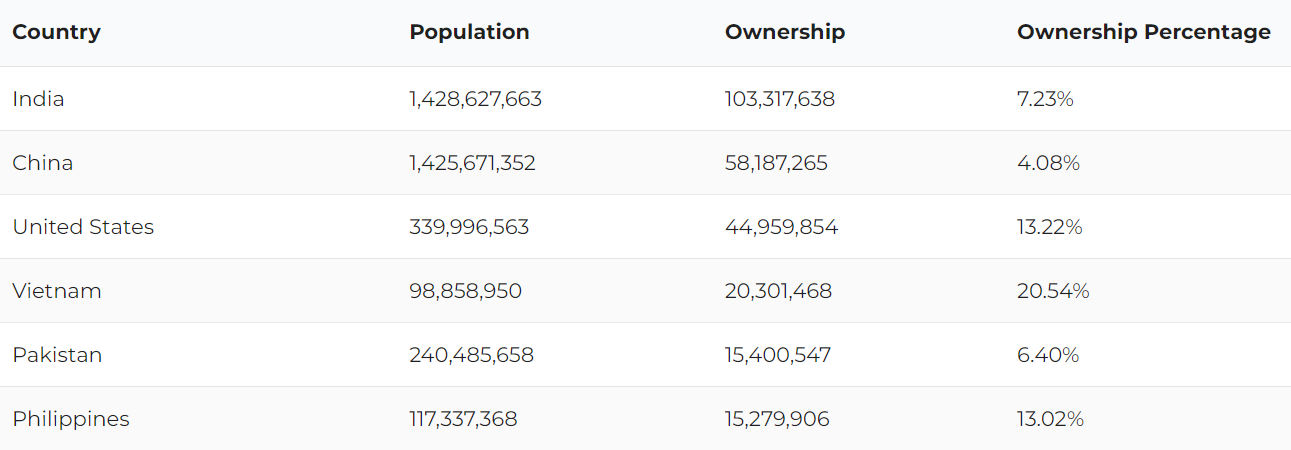Asia’s About to Take Over the Web3 Gaming

This blog post will cover:
- Integration of Web3 in numbers
- Benefits of Web3 tech
- Gaming giants switch to Web3
- Conclusion
The crypto and blockchain sectors are growing fast. Just 7-8 years ago we did not expect them to spread all around the world and to become a real phenomenon changing the lives of many people. We have already discussed the popularity of cryptocurrencies in various countries — Spain, Ireland, Germany, Brazil, Australia, Nigeria, India etc. But today we’d like to take a closer look at Asia taking over the global Web3 gaming market, so that you could see the scope of its impact on the sphere.
Major players in the Asian gaming sector are increasingly turning to Web3 tech to revolutionize the global gaming landscape. As gaming firms seek to implement blockchain and DeFi into their products, they are poised to gain a competitive edge in an industry that generates billions of dollars in revenue each year.
Integration of Web3 in numbers
Asia is rocking the boat of the Web3 gaming market as the area takes the lead in crypto and blockchain concepts. In accordance with recent statistics, a large portion of such projects are born in Asia which we will talk about a little later. However, this trend is likely to continue, with more blockchain startups emerging in the region. Furthermore, countries of Asia also have a high percentage of crypto ownership, taking the first place along with the United States. Here’s a data provided by Triple-a:
This high adoption rate has paved the way for more integration of Web3 technologies in the region, with more businesses and gaming platforms adopting blockchain and crypto-based models.
According to NewZoo, Asia is a leader in adopting Web3 gaming. China has over 740 million gamers which might become a target audience of blockchain-based game:
Pacific Meta made an interesting survey including over a thousand Japanese adults and figured out that 40% heard about the existence of blockchain-based games. Among them, nearly 57% claimed Web3 games “seem to be interesting,” while about 10% said they weren’t keen on them. Roughly 33% said “neither,” suggesting they weren’t sure about Web3 games and didn’t have any opinion yet.
Is adoption of Web3 gaming in Asia a mission possible? The answer is yes, and it’s already happening. Despite the regulatory challenges that some countries in Asia face, there has been a growing trend towards more favorable regulations for blockchain and crypto-based projects.
Earlier, SimpleSwap has told about the crypto regulation in Asian countries: South Korea, India, Japan, Vietnam, Indonesia, Hong Kong, Philippines, Singapore. Each of these countries announces periodical updates on crypto regulation laws, launch their own “digital currency”, start accepting crypto as a payment and much more. Some of them, such as Hong Kong and Singapore are already considered to be the “crypto hubs”, the birthplaces of major projects.
Benefits of Web3 tech
One of the primary benefits of integrating Web3 technologies into gaming is the ability to create in-game assets that are truly owned by the players themselves. This represents a major shift away from the traditional model of gaming, where players are often at the mercy of centralized authorities and have limited control over their in-game assets. By leveraging blockchain and DeFi, gaming companies can create a more transparent and equitable system that rewards players for their time and effort.
In addition to creating a more user-friendly experience, Web3 technologies also offer gaming brands the potential to increase revenue streams through new monetization models. By leveraging blockchain and smart contracts, gaming companies can create new sources of income that are not dependent on traditional payment methods, such as credit cards or bank transfers. This can open up new markets for gaming companies and help them reach a wider audience.
Furthermore, Web3 technologies also offer the potential to increase security and prevent fraud in gaming. By leveraging blockchain and decentralized networks, gaming companies can create a more secure and tamper-proof system that is resistant to hacks and other forms of cybercrime. This can help build trust and confidence among players, leading to increased engagement and yield for gaming corporations.
Gaming giants switch to Web3
The industry of games has witnessed a significant shift in recent times as companies move from Web2 to Web3, integrating blockchain tech into their operations. This tendency is quite noticeable in Asia, where developers are utilizing their existing IPs and market presence to get the best out of the blockchain and NFTs potential.
- Tech giant Sony has made remarkable progress in the blockchain sphere when it applied for the patent related to NFT. While none of video game console manufacturers has openly accepted NFTs, Sony aims to establish a standardized digital infrastructure for gamers to deal with NFTs across various platforms.
- Bandai Namco is planning to expand its blockchain initiatives by launching a network of games and interactive media, starting with Gundam, a well-known anime and video game series.
- Wemade from Korea has experienced significant growth due to the success of its blockchain game “Mir 4 Global,” based on the famous game IP. After the decrease of the game’s token, WEMIX, the company decided to launch its own Layer-1 blockchain.
- South Korean giant Netmarble picked blockchain as a new growth engine and entered the market with a two-track approach through the Klaytn (KLAY) based platform Marblex and the BSC-based platform FNCY.
- Another Korean company Com2uS is developing a PoS blockchain called XPLA, using the Cosmos SDK. The company, which is known for its mobile game “Summoner’s War,” aims to leverage blockchain tech to expand its influence in the industry.
- Japanese Square Enix, known for its core IPs — “Final Fantasy” and “Dragon Quest,” has proposed blockchain games as a mid- to long-term growth strategy. The company is currently developing “Symbiogenesis,” an NFT game set to launch on Polygon (MATIC), indicating its intent to explore the capacity of blockchain gaming further.
- Sega, one of the pioneer Japanese gaming firms, announced at the end of 2022 that it would present its blockchain game in collaboration with Double Jump Tokyo. The game, based on Sega’s Sangokushi Taisen, will be built using Oasys (OAS).
Conclusion
Overall, Asia's strong presence in the Web3 gaming market is a testament to the region's growing influence in the blockchain and crypto space. With more regulatory clarity and favorable policies, the region is set to continue leading the way in the development of Web3 technologies and their integration in various industries, including gaming.
From this article we found out the stats of Web3 presence in Asia and discussed some of the large companies joining Web3, blockchain and NFT sectors. Now, in addition to Axie Infinity, we know several more promising gaming projects.
Looking forward to more news about Asia crypto and blockchain adoption? Stay tuned with SimpleSwap — we deliver the freshest updates straight from the Crypto World.



